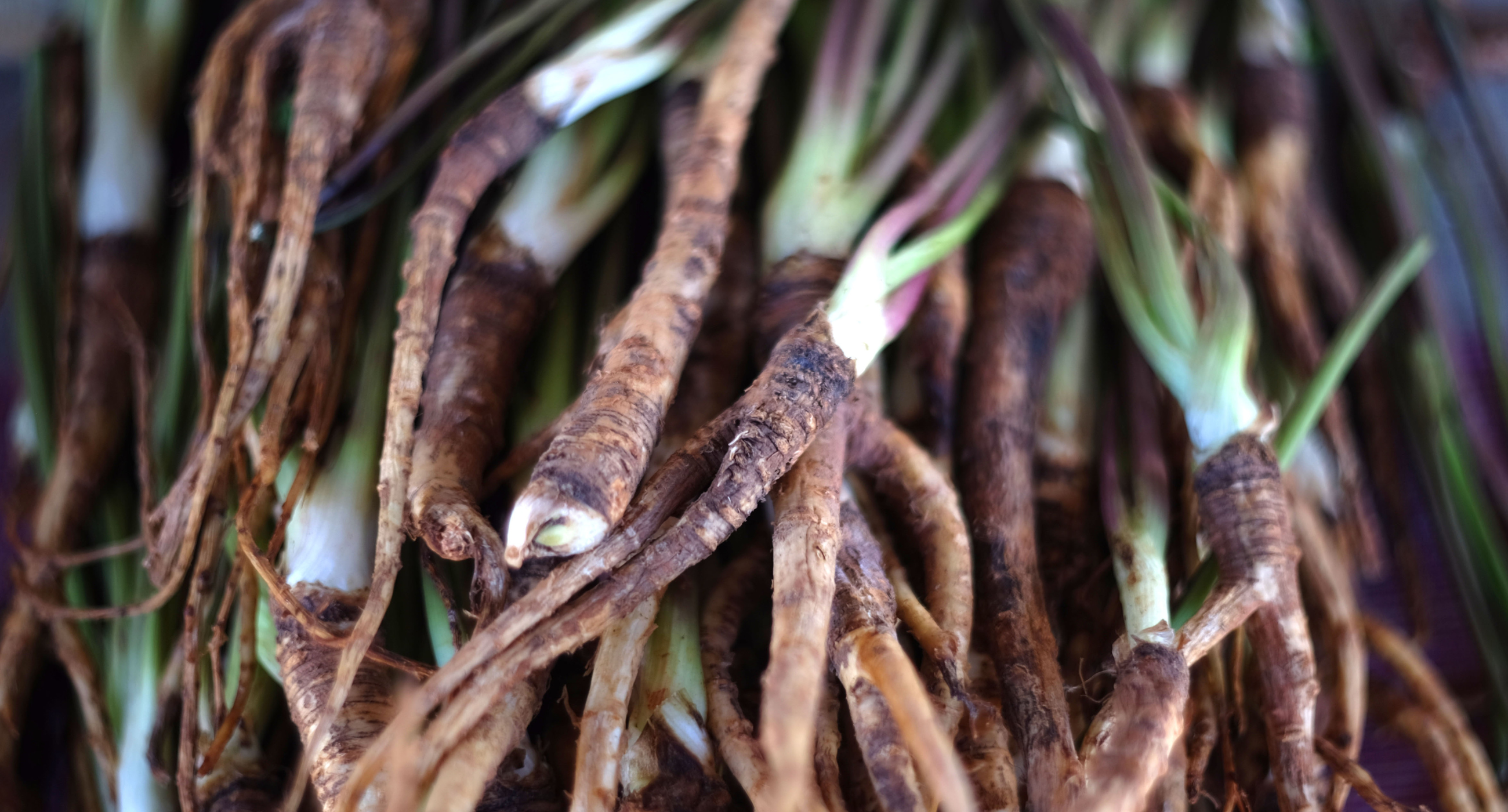
Dong Quai
Scientific Name: Angelica sinensis
Herbal Profile: Dong Quai
Scientific Name: Angelica sinensis
Family: Apiaceae
Common Names: Dong Quai, Chinese Angelica, Female Ginseng, Dang Gui
Description:
Dong Quai is a perennial herb native to the cold, damp regions of China, Japan, and Korea. The plant has large, fern-like leaves and produces small white-green flowers in umbrella-shaped clusters called umbels. The thick, yellowish-brown root of Dong Quai is the part most commonly used in herbal medicine. Dong Quai is highly valued in traditional Chinese medicine (TCM) and is often referred to as "female ginseng" due to its reputed benefits for women’s health.
Traditional Uses:
Dong Quai has been used for thousands of years in traditional Chinese medicine, particularly for its effects on female reproductive health. It is known for its ability to regulate the menstrual cycle, relieve menstrual cramps, and support overall hormonal balance. Common traditional uses include:
- Menstrual Health: Dong Quai is widely used to regulate menstrual cycles, particularly in cases of irregular periods, amenorrhea (absence of menstruation), and dysmenorrhea (painful menstruation). It is believed to balance estrogen levels and improve uterine health, making it beneficial for women experiencing hormonal imbalances.
- Menopause Support: The herb is often used to alleviate menopausal symptoms such as hot flashes, night sweats, mood swings, and vaginal dryness. Dong Quai helps balance hormone levels and may provide relief from these symptoms by supporting estrogenic activity.
- Blood Tonic: In TCM, Dong Quai is considered a blood tonic, which means it is used to nourish the blood, improve circulation, and promote healthy blood flow. It is often prescribed for women with anemia, fatigue, and those recovering from childbirth.
- Anti-Inflammatory and Pain Relief: Dong Quai has anti-inflammatory properties and is traditionally used to relieve pain associated with arthritis, muscle pain, and injuries. It is thought to work by improving circulation and reducing inflammation.
- Cardiovascular Health: Dong Quai is believed to support cardiovascular health by improving blood circulation and reducing blood pressure. It is also thought to have mild blood-thinning properties, which can help prevent blood clots.
- Immune System Support: The herb is sometimes used to strengthen the immune system and support overall health, particularly in individuals who are recovering from illness or have weakened immune systems.
Active Compounds:
- Phthalides: Including butylphthalide and ligustilide, which contribute to Dong Quai’s ability to improve blood flow, reduce inflammation, and relieve pain.
- Ferulic Acid: An antioxidant compound that helps protect cells from oxidative damage and supports cardiovascular health.
- Polysaccharides: Provide immune-boosting effects and help regulate the immune system.
- Coumarins: Have mild anticoagulant effects, supporting blood flow and potentially reducing the risk of blood clots.
- Vitamins and Minerals: Dong Quai is rich in vitamins A, B12, E, and various minerals, including iron, which supports blood health and overall vitality.
Preparation and Dosage:
- Capsules/Tablets:
- Tincture:
- Tea (Decoction):
- Powder:
- Combination Formulas:
Safety and Precautions:
- Pregnancy and Breastfeeding: Dong Quai should be avoided during pregnancy due to its potential to stimulate uterine contractions, which could increase the risk of miscarriage or premature labor. It is also not recommended during breastfeeding due to insufficient safety data.
- Hormone-Sensitive Conditions: Due to its potential estrogenic effects, Dong Quai should be used cautiously by individuals with hormone-sensitive conditions, such as breast cancer, uterine fibroids, or endometriosis. Consult with a healthcare provider before use.
- Blood Thinning: Dong Quai has mild blood-thinning properties and may increase the risk of bleeding, especially in individuals taking anticoagulant or antiplatelet medications. Avoid using Dong Quai before surgery and consult a healthcare provider if you are taking blood-thinning medications.
- Medication Interactions: Dong Quai may interact with hormonal contraceptives, hormone replacement therapy (HRT), and other medications that affect blood clotting. Consult with a healthcare provider before use if you are taking any medications or have underlying health conditions.
- Photosensitivity: Some individuals may experience increased sensitivity to sunlight when taking Dong Quai, leading to a higher risk of sunburn or skin irritation. Use sun protection when outdoors.
Conclusion:
Dong Quai is a versatile herb with a long history of use in traditional Chinese medicine for supporting women’s health, particularly for regulating menstrual cycles, relieving menstrual cramps, and alleviating menopausal symptoms. It is also valued for its ability to nourish the blood, support cardiovascular health, and provide anti-inflammatory and immune-boosting effects. While generally considered safe for most people, Dong Quai should be used with caution, especially by those with hormone-sensitive conditions, those pregnant or breastfeeding, or individuals taking blood-thinning medications. Always consult with a healthcare professional before starting any new herbal regimen, especially if you have underlying health conditions or are taking medications.
